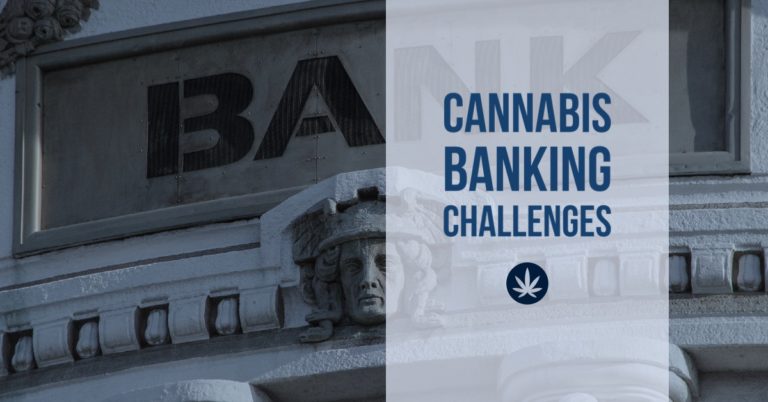The cannabis industry in Missouri is growing rapidly, but cannabis businesses face a number of challenges, including accessing banking services. This is because marijuana is still illegal under federal law, and financial institutions are hesitant to work with cannabis businesses for fear of violating federal regulations. This article sheds light on cannabis banking challenges and offers guidelines to navigate them effectively.
State of Cannabis Banking in Missouri
Missouri voters legalized medical marijuana in the state in 2018. Since then, the Missouri cannabis industry has grown to what is expected to be 1 billion in sales in 2023. However, managing the finance and tax side of the business is a challenge—not just for the cannabis businesses themselves—but also vendors providing them services.
The legal status of medical marijuana at the federal level has led to a peculiar scenario for businesses operating in this space. While it’s state-legal, it remains federally illegal. This dichotomy causes hesitancy among banks to openly and freely conduct business with cannabis companies. High fees and potential legal ramifications make many financial institutions wary. This complicates the already intricate process of conducting business for many cannabis entrepreneurs.
Banks are allowed to offer services in the cannabis space, but they’re held to a higher standard of documentation, like cannabis businesses themselves. This is due to federal regulations, which still list marijuana as a Schedule 1 drug. Finding a bank willing to allow depository accounts is possible, however the monthly account fees far exceed those for non-cannabis businesses.
In July 2023, Missouri’s Governor Parsons signed a law that makes banking slightly easier on cannabis companies by allowing banks to communicate directly with the Division of Cannabis Regulation on compliance issues.
Steps to Overcome Cannabis Banking Challenges
David Smith, president of Smith Patrick CPAs and a significant figure in the Missouri Cannabis scene, provides firsthand insights into the struggles faced by these businesses. He has served on the board of the Missouri Medical Cannabis Trade Association and has testified before Missouri legislators on tax-related cannabis issues. In addition to offering resources related to taxes, Smith and his colleagues at Missouri-based Smith Patrick CPAs, advise cannabis businesses when it comes to industry-specific banking issues.
Smith Patrick’s expert cannabis team offers the following, helpful tips for marijuana-based businesses with regard to banking:
- Work with a smaller, state-chartered bank or credit union. These institutions may be more likely to work with cannabis businesses than larger banks and may have tighter control on documentation.
- Consider using a service that acts as an overlay to banks that may not want to operate in the cannabis space directly. These services can handle compliance on behalf of the bank, which can make it more acceptable for banks to work with cannabis businesses.
- Advocate for the passage of the SAFE Banking Act. This federal bill would provide safe harbor for banks that work with cannabis businesses.
Congressional Legislation Developments on Cannabis Banking
The federal stance on cannabis, which classifies it as a Schedule 1 drug, has been a roadblock for the cannabis industry on many fronts. However, there’s movement at the federal level that might change the landscape. One such movement, the Secure and Fair Enforcement (SAFER) Banking Act, recently amended and advanced by the Senate Committee on Banking, Housing, and Urban Affairs, aims to rectify this situation.
Originally the Secure and Fair Enforcement (SAFE) Banking Act, this bipartisan initiative was reintroduced by Sen. Steve Daines (R-MT) and Sen. Jeff Merkley (D-OR). The main impetus behind the SAFER Banking Act is to provide state-compliant cannabis businesses easier access to banking services, from simple banking operations to more complex financial instruments. Given the precarious position that many marijuana-based businesses find themselves in—especially small operators who are largely operating on a cash-only basis—this is crucial for the industry’s safety and growth.
Key Features of the SAFER Banking Act Include:
- Development of uniform guidelines and examination procedures by federal regulators for cannabis-related businesses.
- Banks would be given protection against unwarranted closures of cannabis-business bank accounts, unless there’s a valid reason. Also, clearer guidance on the exact circumstances under which banks can close cannabis-related accounts.
- Protections for employees of cannabis businesses seeking residential mortgages funded by federal programs.
David Smith’s advocacy for the passage of the SAFE Banking Act also echoes the sentiments of many industry players across the nation. Smith has spoken on this topic with St. Louis Public Radio previously.
“In the current cannabis environment, the fear of sanctions has kept a lot of banks and credit unions from supporting this industry,” Smith said. “But what this SAFE Banking Act does is it reduces those restrictions, provides safe harbor, and does allow the banks really to continue to operate in these state-legal businesses, even as they’re illegal on the federal level.”
For Missouri cannabis entrepreneurs, the potential federal shift can alleviate many banking struggles they currently face. The bill’s success in the Senate would be a significant milestone for cannabis businesses. It would benefit business operations and the safety of staff, as this would reduce the need for cash.
Looking Ahead
As the debate around cannabis banking continues in Congress, the importance of federal support becomes more evident. The momentum behind the SAFER Banking Act, underscored by broad organizational backing and public favor, signals a positive shift for state-sanctioned cannabis businesses. The act’s progress in the Senate is a step forward, but the culmination of these efforts remains to be seen. The cannabis accounting team at Smith Patrick will keep a close eye on on the legislative developments that can shape the cannabis industry’s future.
More Information
If you have questions, contact us to discuss your situation.
To check out our other articles on business topics, click here.

Sarah Bantz
Sarah Bantz, CPA, is a senior accountant in Smith Patrick’s growing cannabis accounting and business advisory division. Her experience includes: tax planning for cannabis-based businesses, 280(e) calculations, cannabis business payroll, cash flow management, internal controls and cash handling, and product inventory. The Smith Patrick CPA team helps marijuana industry clients make informed, strategic data-driven decisions, while also keeping their back office humming with updated and accurate financial data.
About Smith Patrick CPAs
Smith Patrick CPAs is a boutique, St. Louis-based, CPA firm dedicated to providing personal guidance on taxes, investment advice and financial service to forward-thinking businesses and financially active individuals. For over 30 years, our firm has focused on providing excellent service to business owners and high-net worth families across the country. Investment Advisory Services are offered through Wealth Management, LLC, a Registered Investment Advisor.





